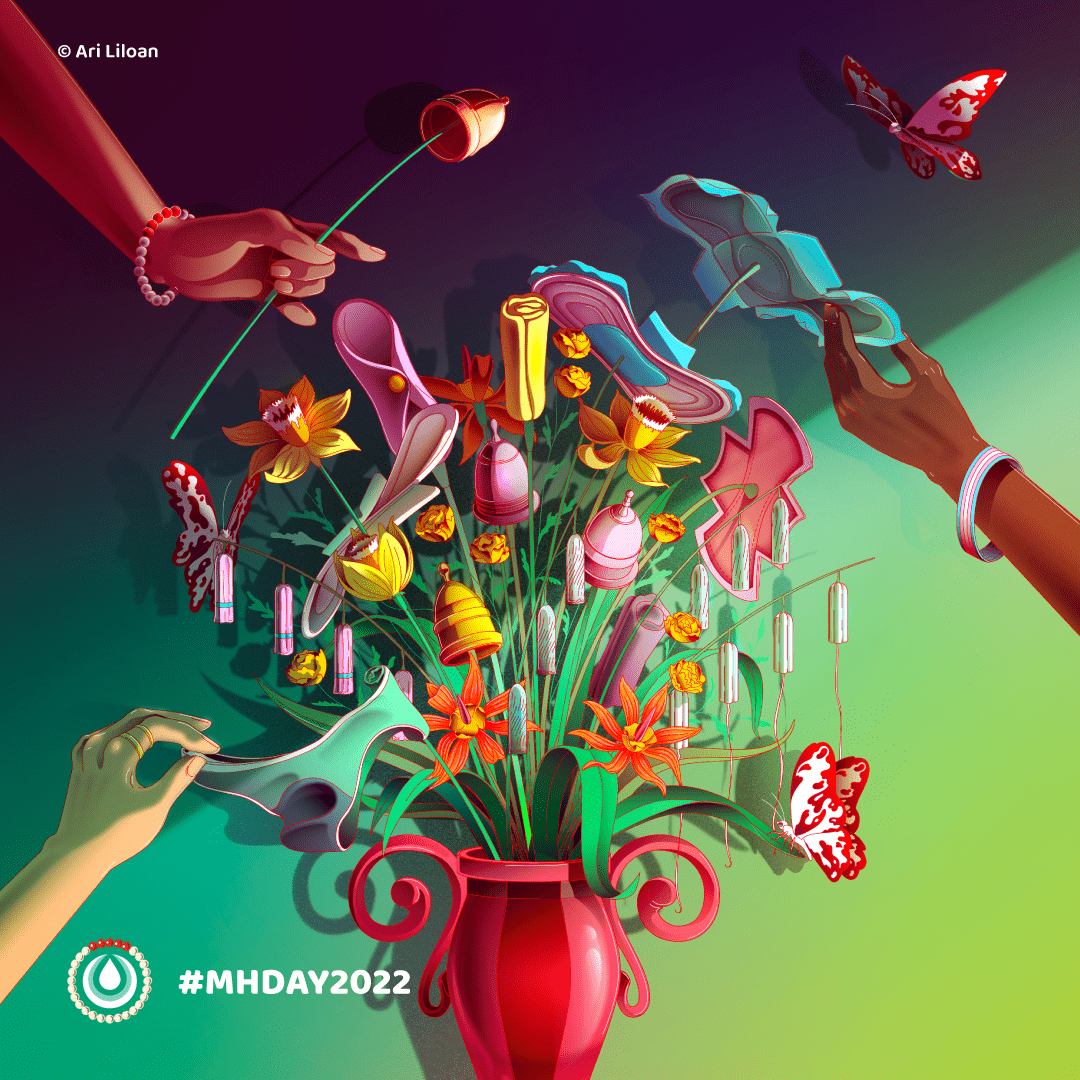Five things you need to know about Menstrual Hygiene Day 2022
Periods are as normal as breathing. Yet all around the world people are excluded, stigmatised and shamed simply because they menstruate. Myths and taboos about periods are harmful not only for women and girls but for all of us, whether we menstruate or not.
28 May, is Menstrual Hygiene Day (MH Day), the annual global day of awareness and action to create a world where no one is held back because they menstruate by 2030. Here are five things you need to know about why in 2022 this day is more important than ever.
1. It’s a global problem
500 million women and girls around the world don’t have what they need to manage their periods safely, hygienically and without shame. This is due to a combination of lack of access to period products, lack of education about menstruation and inadequate water and sanitation infrastructure. The persisting taboos and stigma around menstruation is the root cause that underpins all of these issues. As long as we can’t talk openly about periods, we can’t address these challenges effectively.
2. Period stigma has far-reaching effects, for all of us
The consequences are severe. Health, educational and income-earning opportunities, as well as the overall social status of women and girls, are all impacted by menstruation-related challenges. Management consulting firm Kearney estimates the annual economic impact of not addressing these issues is more than EUR 100 billion. And that’s for the European Union alone.
3. MH Day partners address a wide range of challenges
Organisations around the world are working hard to address these challenges. In fact, the MH Day movement consists of over 830 partners all addressing different aspects of the problem. This includes providing access to quality menstrual products, educating school children about menstruation, campaigns to eliminate taxes on menstrual products, policy advocacy and much more.
4. Change is happening
Between 2014 and 2021, the stigma-busting impact of the Menstrual Hygiene Day campaign has grown from reaching 20 million people in our first year to reaching over 560 million people in 2021. And, more and more organisations, governments and individuals are addressing menstruation-related challenges. In Spain, workers are set to be eligible for designated sick leave when experiencing severe menstrual pain. This has already been introduced in other countries around the world such as South Korea, Indonesia and Japan. And that’s not all. In New Zealand period products are now available for free in schools. In Scotland, such products are free for anyone who needs them and can be picked up at points across the country. In Zimbabwe, MHM education will soon become a part of school curriculums.
5. More investment is needed. Urgently.
Due to the work of the MH Day movement, societal awareness of the challenges related to menstrual health and hygiene has grown dramatically. And it has become a much higher political priority in many countries across the globe. We already have the technical solutions and there are hundreds of committed organisations willing to step up their efforts. We are convinced that it is possible to create a world where no one is held back because they menstruate by 2030. However, without a significant increase to funding for the issue, the movement will fall short of its goal. And, as a result, millions of women and girls around the world will be kept from achieving their full potential.
Source: https://menstrualhygieneday.org/



